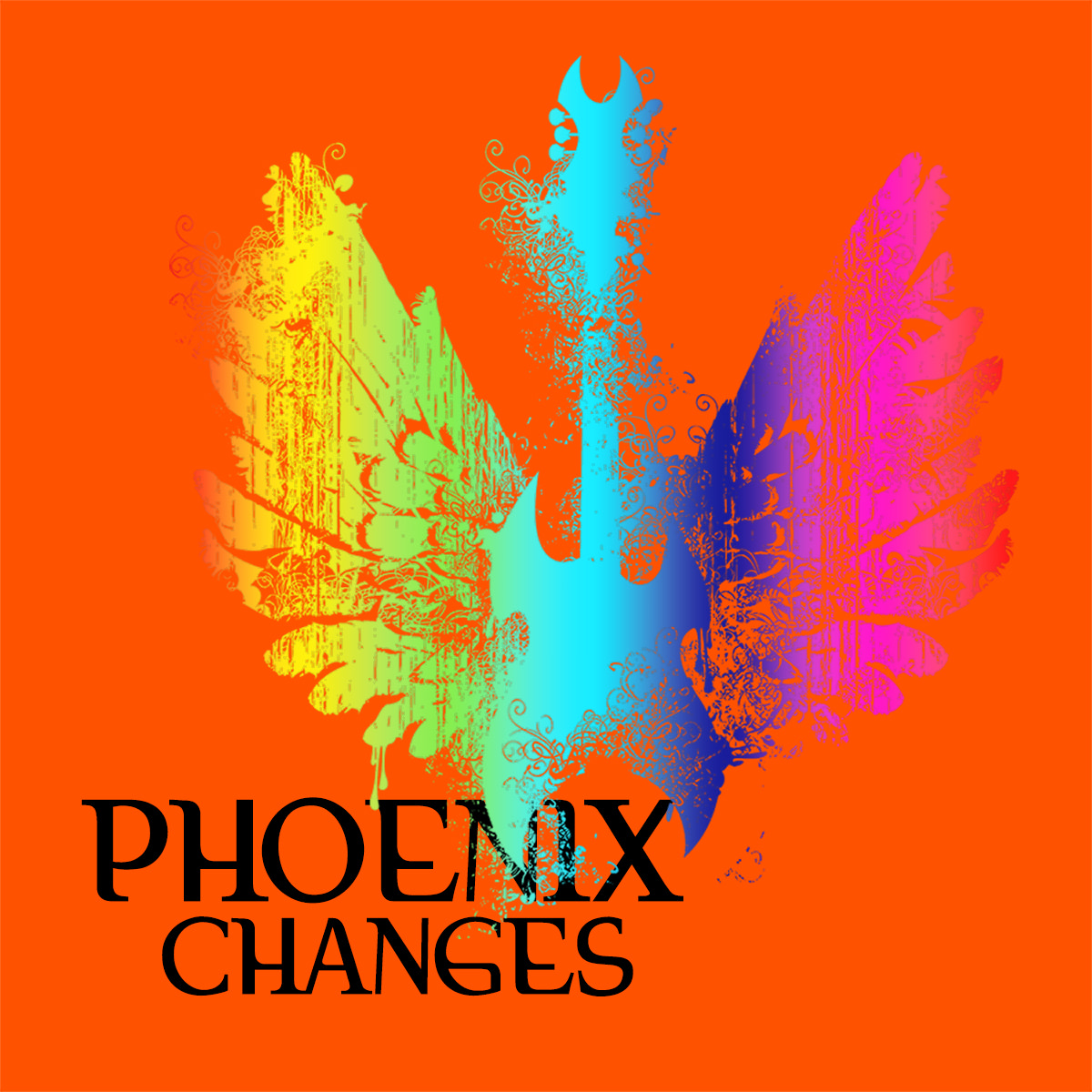Sonobeat Artists
Phoenix
Phoenix rising
Coming into 1971, Phoenix already had established its reputation throughout Central Texas as a high energy rock trio and was booked regularly into Austin’s most popular music venues. The band opened for ZZ Top in a 1970 performance widely reported as occurring in Wichita Falls, Texas, but more likely it was at Armadillo World Headquarters in Austin, and, after the band’s Sonobeat sessions, for Sugarloaf in a San Antonio, Texas, performance in 1972.
Although Rodney and Tom weren’t veteran musicians when they joined Phoenix, the trio as a whole was tight and talented and seemed to hold great promise. Rodney had learned bass from a friend while working at a gas station during high school in Iowa City, Texas, and was solid by the time he arrived in Austin in 1969. Tom, a San Antonio native, got into drumming by hanging around the music store his parents owned, playing locally in teen bands and church groups before moving to Austin after high school graduation.
Beginning February 4, 1971, Sonobeat producer Bill Josey Sr. recorded a demo of two of the unit’s original songs, Changes and I Found Love. Although the location of the sessions isn’t documented in the Sonobeat archives, we’re pretty sure Phoenix recorded at Sonobeat’s home-based Western Hills Drive studio in northwest Austin, which was just large enough, with its drum and vocal isolation booth and small studio floor, to comfortably accommodate a trio like Phoenix. Bill typically kept notes documenting each recording session, but those for Phoenix don’t shed much light on the group itself, although the notes do show how Bill mixed the band’s songs from the 4-track session master to two tracks on a second 4-track master in order to add a guitar overdub. The Sonobeat archives provide no explanation why Sonobeat never released a Phoenix single or why the stereo mix-down was labelled as a “demo”, but our educated guess is that the band’s two tracks, each over four minutes in length, were too long to comfortably fit on a stereo 45 RPM single that, for high energy rock tracks that required deeper and more widely spaced grooves, maxed out at under four minutes per side. It’s likely that Bill’s intention was to shop the single to national labels and, if he had gotten a bite, to re-mix or re-record the songs.
Ashes to ashes
Phoenix didn’t last beyond the end of 1971. By then, Leonard and his former Lavender Hill Express bandmates Rusty Wier, Layton DePenning, and Gary P. Nunn were into the progressive country music movement that overtook Austin in the early ’70s. There’s just a hint of the beginnings of progressive country in Phoenix’s vocals, but the trio’s total sound was distinctively early ’70s Austin rock.
Leonard eventually ended up in Nashville, Tennessee, and for years backed up more country stars, all famous, than we can list. Leonard succumbed to cancer on September 25, 2015. Tom gave up his music career shortly after Phoenix disbanded, returning to San Antonio where he played out a 35 year corporate career at CPS Energy (San Antonio’s community-owned natural gas and electricity provider), retiring in 2019. Following Phoenix, Rodney moved on to play bass for progressive country superstar B.W. Stevenson, whose backup band also featured ex-Lavender Hill Express guitarist Layton DePenning and Plymouth Rock and South Canadian Overflow alum Donnie Dolan on drums. Rodney played on Stevenson’s breakout album My Maria in 1973. After years on the road, though, he left music to take a job as a machinist in various north Texas cities, eventually retiring to Bowie, Texas, in 2001, where he once again took up bass guitar. Rodney died of cancer on March 17, 2019. Tom passed away on August 26, 2020. Phoenix and its members are gone, but patrons who frequented Austin nightclubs in the early 1970s should fondly recall the band and its music.
The trio
- Leonard Arnold (lead guitar)
- Rodney Garrison (bass)
- Tom Harmon (drums and lead vocals)
Recording details
Unreleased recordings
- Changes • 4:07
- I Found Love • 4:05
Produced and engineered by Bill Josey Sr.
Recorded at Sonobeat’s Western Hills Drive studio, Austin, Texas, on various dates in February 1971
Recorded using...
- AKG D707E dynamic, ElectroVoice Slimair 636 dynamic, and Sony ECM-22 electret condenser microphones
- Scully 280 half-inch 4-track, Stemco 500-4 half-inch 4-track, and Ampex AG-350 quarter-inch 2-track tape decks
- Custom 16-channel 4-bus mixing console
- Fairchild Lumiten 663ST stereo optical compressor
- Blonder-Tongue Audio Baton 9-band graphic equalizer
- Custom steel plate stereo reverb
- 3M (Scotch) 202 and Ampex 681 tape stock







